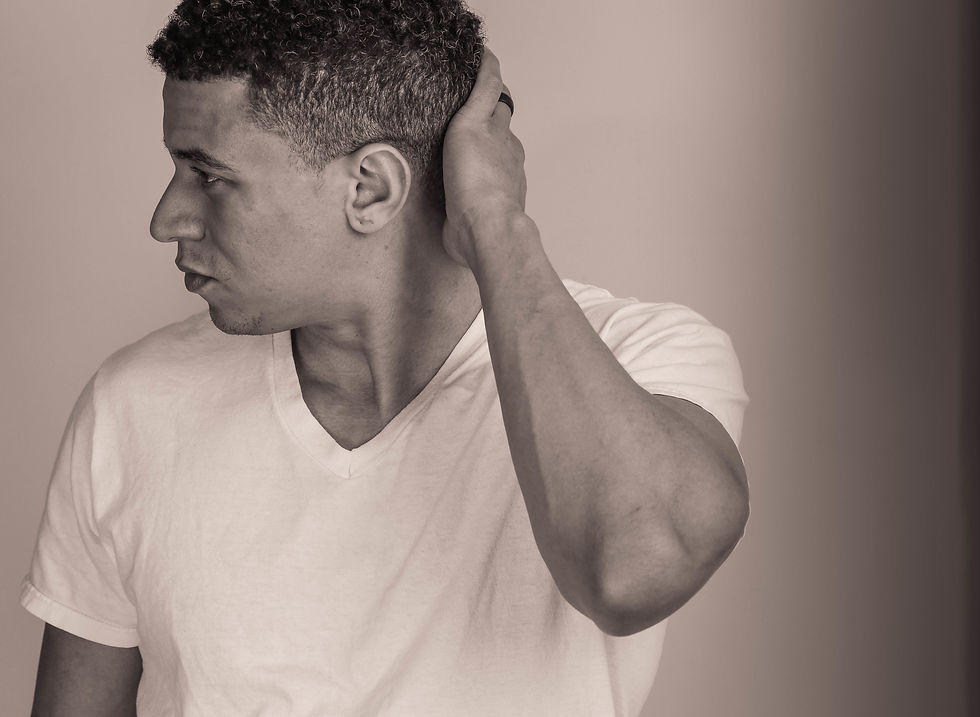Treating Concussion before...
- Mar 28, 2024
- 3 min read
Updated: May 7, 2024
Current Conservative Medical System - Treatment Options for Concussion are mild and generally not very effective as specific treatments targeting the condition with an actual solution these non-specific suggestions are generally given to the medical clinic patient :
Rest and Gradual Return to Activity: The mainstay of concussion treatment is rest, followed by a gradual return to physical and mental activity.
Supportive Care: Supportive care involves limiting physical and cognitive exertion immediately after injury. It includes adequate sleep and rest breaks during the day.
Exercise Therapy: Light exercise and physical activity, as tolerated, have shown benefits in speeding up recovery. However, it's essential to start these activities gradually and under the guidance of a healthcare provider.
Cognitive Rest: Limiting mentally demanding activities, such as screen time and academic work, can aid in recovery by reducing cognitive strain.
These treatment options aim to manage symptoms and prevent complications following a concussion.
Treating Concussion effectively...
EFFECTIVE TREATMENTS FOR EFFECTIVE RESULTS

Headache & Tendon offers a specific treatment, NasalRX, Cranial adjustments and Orthotech - proven to bring effective change at specifically altering the position of Cranial bones for blood flow and cerebral spinal flow.
Understanding Concussion:
Causes and Risk Factors
Concussion stem from head impacts, causing the brain to swiftly move back and forth. This motion can trigger chemical alterations and potentially harm brain cells. Although the skull acts as a protective barrier, impacts can disrupt brain function, leading to bruising, nerve injury, and blood vessel damage. Consequently, brain function may be impaired, manifesting as disturbed vision, equilibrium loss, or unconsciousness post-injury.
Several factors increase concussion risk:
Engaging in contact sports without proper safety gear.
Falls, particularly among children and older adults.
Inadequate safety equipment in contact sports.
Motor vehicle accidents.
Direct head impact with an object.
Military service.
Prior concussion history.

The severity and symptoms of concussions vary, categorized into three grades:
Grade 1 - Mild Concussion: Symptoms lasting less than 15 minutes without loss of consciousness, including headache, dizziness, and difficulty concentrating.
Grade 2 - Moderate Concussion: Symptoms persisting over 15 minutes, such as persistent headache, confusion, and mood swings.
Grade 3 - Severe Concussion: Involves loss of consciousness with accompanying symptoms like severe headache, slurred speech, and seizures.
Prompt medical attention is crucial, especially for severe concussions, to ensure proper evaluation and optimize recovery.
Unlock Your Brain's Natural Healing Power with Craniofacial & NasalRX Treatment!
Are you or a loved one struggling to find relief from the aftermath of a concussion? Discover the revolutionary solution that's changing the game for post-concussion syndrome (PCS) recovery.
Introducing Craniofacial / NasalRX Treatment - the breakthrough therapy that targets the root causes of PCS, offering a path to genuine relief and restoration.
Experience the Science Behind Craniofacial Treatment
Previous studies have unveiled the remarkable benefits of NasalRX & Craniofacial Manual Lymphatic Drainage (MLD). By facilitating the clearance of brain fluids, this therapy effectively reduces intracranial pressure and aids in reabsorbing chronic subdural hematoma. Now, a groundbreaking study delves deeper into the impact of NasalRX Craniofacial MLD treatment.
Exploring the Transformative Effects
In a recent study, Patient 2 underwent a comprehensive treatment regimen, including both pharmacological therapy and NasalRX Craniofacial MLD. The results were astounding - after just two 30-minute sessions per day over three days, Patient 2 experienced a significant decrease in cranial pain intensity and systolic blood pressure.
Witness the Remarkable Progress
The evidence speaks for itself: Patient 2 saw a remarkable decrease in cranial pain intensity (66%) and systolic blood pressure (11.11%). In contrast, Patient 1, who received only pharmacological therapy, witnessed minimal to no improvements, with no significant changes in cranial pain intensity and only a slight increase in systolic blood pressure. Moreover, imaging revealed a notable increase in Hounsfield units (HUs) in critical brain regions, indicating a reduction in cerebral edema - a pivotal factor in PCS recovery.
In contrast, Patient 1, who received only pharmacological therapy, witnessed minimal improvements, with no significant changes in cranial pain intensity and only a slight increase in systolic blood pressure.
Your Path to Recovery Starts Here
Don't let PCS hold you back any longer. Embrace the power of NasalRX Craniofacial Treatment and take the first step towards a brighter, pain-free future. Experience reduced cerebral edema, decreased head pain intensity, and stabilized vital signs - all crucial elements in your journey to recovery from moderate traumatic brain injury (mTBI).
Ready to reclaim your life? Schedule your NasalRX Craniofacial Treatment session in our Headache & Tendon Colombo St, Christchurch clinic today and unlock the door to a healthier future.



Comments